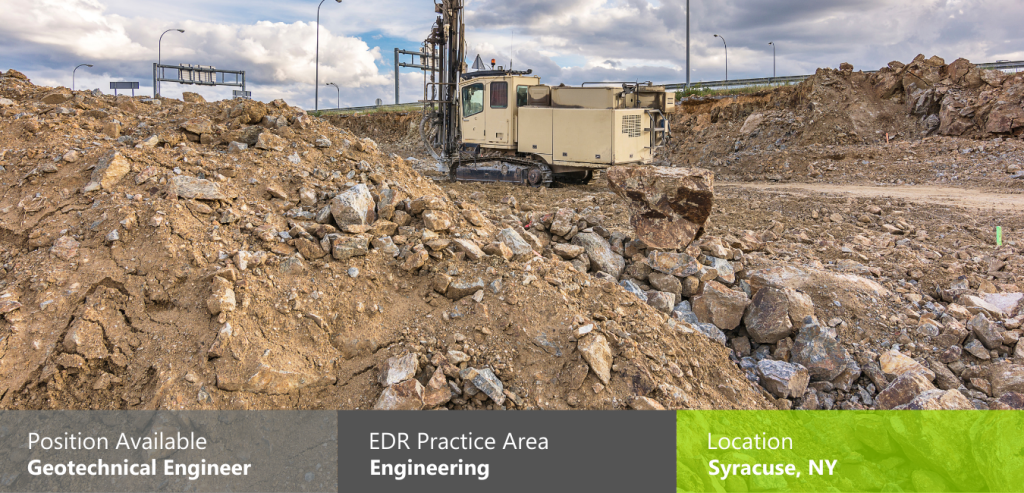An Extensive Introduction of the Secret Providers Used by Consulting Civil Design Professionals in Modern Building
Consulting civil engineering professionals are important to the success of modern-day building and construction jobs, using a multifaceted suite of solutions that resolve various obstacles. geotechnical engineering in south africa. As the complexity of construction tasks continues to progress, recognizing the full spectrum of services they supply comes to be progressively important for stakeholders.
Site Evaluation and Usefulness Researches
When embarking on any building task, understanding the website's qualities is important, as it straight affects the expediency and style of the growth. Site assessment and feasibility researches are important parts of the pre-construction stage, making it possible for stakeholders to make informed choices. These research studies entail a detailed examination of the physical, environmental, and regulative facets of the website.

Usefulness researches expand past the physical attributes, encompassing financial and social considerations. This consists of cost estimates, potential roi, and neighborhood impact analyses. By integrating these components, civil design professionals can supply a holistic view of the website's feasibility for the desired advancement. Eventually, extensive site analyses and usefulness studies prepared for successful project execution, enhancing and minimizing risks source appropriation.
Structural Design and Evaluation
Following a complete site assessment and usefulness study, the next important phase in the building procedure is architectural design and analysis. This vital solution involves the advancement of architectural systems that make sure the safety, sturdiness, and economic practicality of a project. Consulting civil designers use innovative methods and software program to evaluate lots, stresses, and product properties, guaranteeing that styles abide by appropriate codes and standards.
Architectural design includes numerous aspects, consisting of beams, columns, foundations, and load-bearing walls. By applying concepts of auto mechanics and product scientific research, designers produce frameworks that can hold up against ecological pressures such as wind, seismic task, and snow lots. The analysis stage involves meticulous computations to forecast the habits of these frameworks under various conditions, ensuring they can execute as planned throughout their lifespan.
Additionally, seeking advice from designers collaborate closely with designers and various other stakeholders to incorporate architectural components cosmetically and functionally. The deliverables commonly consist of detailed drawings, specs, and thorough reports that facilitate the building and construction process. Inevitably, efficient architectural layout and evaluation are crucial in minimizing risks, enhancing sources, and attaining successful job end results in contemporary construction.
Job Administration and Sychronisation
Efficient project administration and coordination are essential components of successful civil design solutions, guaranteeing that construction tasks are supplied on time, within spending plan, and to the required high quality requirements. Consulting civil engineers play a vital duty in orchestrating numerous task components, from preliminary preparation with to forecast conclusion. This includes not just the technological elements of style and construction but likewise the strategic management of stakeholders, timelines, and sources.

Additionally, civil engineering professionals emphasize the importance of documentation and reporting throughout the task lifecycle - geotechnical engineering in south africa. By keeping exact documents, they ensure openness and liability, which fosters trust among all celebrations involved. Inevitably, skillful task monitoring and control result in improved task end results, aligning with customer assumptions and adding to the general success of the building and construction venture
Regulatory Compliance and Permitting
Successful task monitoring lays the groundwork for resolving regulative compliance and permitting demands in civil engineering jobs. Making certain adherence to regional, state, and government laws is essential for the successful execution and completion of any type of building and construction venture. Consulting civil engineering professionals play an essential role in browsing the facility landscape of regulative structures and permitting processes.
These experts are well-versed in zoning legislations, constructing codes, environmental guidelines, and safety requirements that control construction practices. They perform thorough evaluations to identify all important link suitable laws, making sure that tasks adhere to necessary lawful requirements. By teaming up with governmental firms and stakeholders, seeking advice from designers help with the permitting procedure, enhancing approvals and lessening hold-ups.
Moreover, they prepare and submit the requisite documentation, such as website plans, environmental effect analyses, and design reports. This positive strategy not just fosters compliance but additionally boosts job feasibility and sustainability. Inevitably, efficient regulative conformity and allowing are important elements of a successful civil engineering job, guarding both the environment and public welfare while contributing to the total honesty and success of construction campaigns.
Sustainable Design Practices
Sustainable design methods are significantly identified as essential components in civil design, with an emphasis on decreasing environmental impact while taking full advantage of source efficiency. These practices include a variety of techniques focused on promoting eco-friendly equilibrium and lowering the carbon impact of construction projects.
One secret aspect of sustainable style is the combination of renewable power resources, such as solar and wind, right into structure styles. This not just minimizes reliance on nonrenewable fuel sources however additionally boosts long-lasting expense savings. Furthermore, using lasting materials, including rapidly eco-friendly or recycled resources, plays a significant role in minimizing waste and conserving all-natural sources.
Water management strategies, such as rain harvesting and reliable irrigation systems, are likewise essential in lasting style. These methods aid in reducing water consumption and Click Here shielding regional water environments. In addition, environmentally sensitive site planning ensures marginal interruption to the natural landscape and advertises biodiversity.
Consulting civil design professionals contribute in executing these sustainable style techniques. Their experience allows for the execution of ingenious remedies that align with both regulatory demands and client goals, ultimately adding to a more sustainable developed atmosphere.
Conclusion
In recap, seeking advice from civil design specialists supply vital services that underpin the success of modern-day building tasks. With meticulous site analyses, cutting-edge structural style, effective job administration, adherence to governing criteria, and the application of sustainable practices, these experts contribute to the production of risk-free, effective, and eco liable growths. The assimilation of these vital services not just enhances job end results however also promotes a sustainable future in the construction market.
Effective project management and control are important parts of successful civil design services, making certain that building tasks are supplied on time, within budget, and to the needed top quality criteria. Consulting civil designers play a critical role in coordinating different project elements, from initial preparation with to forecast conclusion. Ultimately, competent job management and coordination lead to enhanced job outcomes, straightening with client assumptions and contributing to the general success of the building endeavor.
